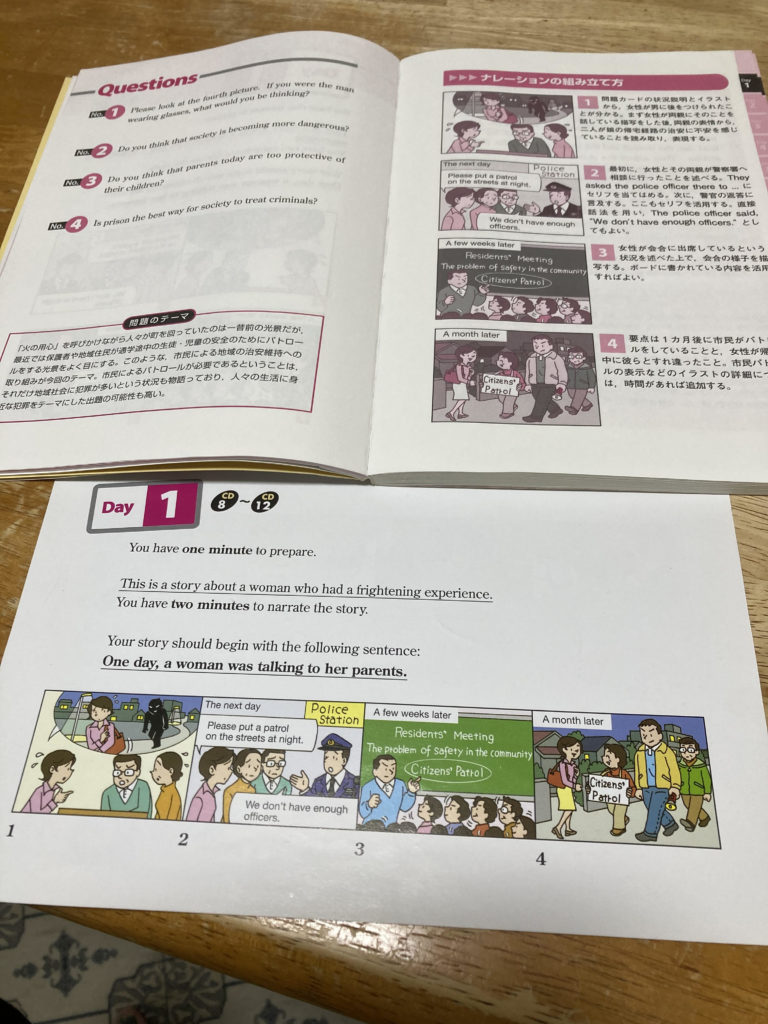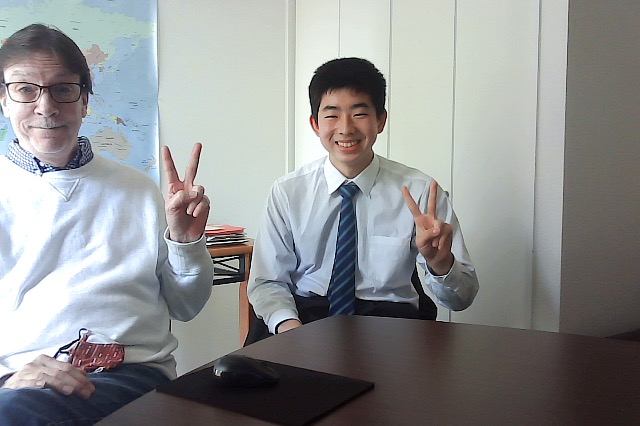Every English student has some kind of success here in Japan, whether they know it or not. Students come to us for a variety of reasons, whether it be a new hobby, for travel purposes, business, work, test-taking, to prepare for their future, “exercise the brain,” and the list goes on…”Success” is a very subjective word. However, over the years I have discovered something very objective in regards to learning English in Japan, whatever the purpose- growth in confidence. Not only communicative confidence, but overall confidence. Even the smallest display of confidence is success. Yoki is 16 years old , and a perfect example of what I’m talking about. He has no problem with sitting in my classroom here in Sagamihara and speaking English to other students that are much older than him- some are four times his age! He is confident and already a success!
Sometimes Teachers Are Wrong
Yoki started learning at Smith’s Sagamihara 3 years ago at age 13. Because he was so young, I remember his mother also attended his trial lesson (Free Trial Lesson). He was a bit shy, but spoke well. Since then, he has taken and passed Eiken tests 5, 4, 3, Pre-2, and recently Grade 2. For those that don’t know, the Eiken test is a national test administered in Japan and measures all four English skills- reading, writing, listening, and speaking (Eiken Test Information). A year ago he asked me if he was ready to try Grade 2, and I gave him my honest opinion- “no.” But he proved me wrong and passed the test 2 months ago. Teachers don’t know everything!

So I Asked This English Student Some Questions
- Why do you like English? “I like to communicate with foreign people and learn about their culture. English is a good way to do that.” I thought to myself, how many foreign people has he really spoken to at such a young age? It turns out that he has already done 3 home-stays in the USA with his mother and sister.
- How do you learn vocabulary? ” I read aloud- textbooks, short stories. If I don’t understand a word, I keep reading, and find that I can understand the words after reading the whole sentence or paragraph” (that’s the way to do it!). I usually don’t use a dictionary. Yoki reads aloud very well; having a nice natural flow.
- Listening. “Online Eiken sites are good for me, so I listen to sentences every day. Progress is slow, but it’s okay. I can usually understand 60-70%.” (Yoki has made considerable improvement in his listening comprehension since 3 years ago).
- Speaking. “We have speaking classes in school 2 days a week. We are grouped into 2-3 students, so we can speak a lot.” I was glad to hear that. He also gets maximum speaking time every week right here in my classroom.
- Reading. “I read something in English every day.”
- Writing. I didn’t ask him about writing, but I know he writes well enough to pass Eiken Grade 2. A few weeks ago I suggested keeping a journal, gave him a fresh notebook, and he has been doing it. He brings it to class every week for correction. He likes it!


I attribute most of his success to good parents. “Mrs. Yoki” speaks and writes excellent English. She has done a great job of introducing Yoki and his sister to other cultures. Yoki tells me that he wants to study abroad in the future. And I believe he will.
Today I gave Yoki an intense introduction to the speaking portion of the Eiken Pre-1 Test.

By the end of the lesson, it was a solid “pass.” This is a difficult university-level test (Eiken, Pre-1 ). I am confident that he will pass it next year. What a pleasure it is to help a young and motivated student. Thank you Yoki; you are helping me more than you know.
Adrian from Smith’s Hirakata writes an interesting article about English student success and what it takes to master the language; offering some valuable advice to everyone. It seems that Yoki is already doing much of what Adrian advises and that he is well on track for a very bright future!

Jim, Smith’s School of English, Sagamihara https://smithweb.co.jp/sagamihara/
Great article Jim. I liked it all especially “ Even the smallest display of confidence is success.”
Thank you Michael.
Really nice write up Jim. I too teach EIKEN at my school, and it was nice to get a window into how you do it and how Yoki approaches his study. There are some really nice insights provided. Thank you.
Thanks Dan